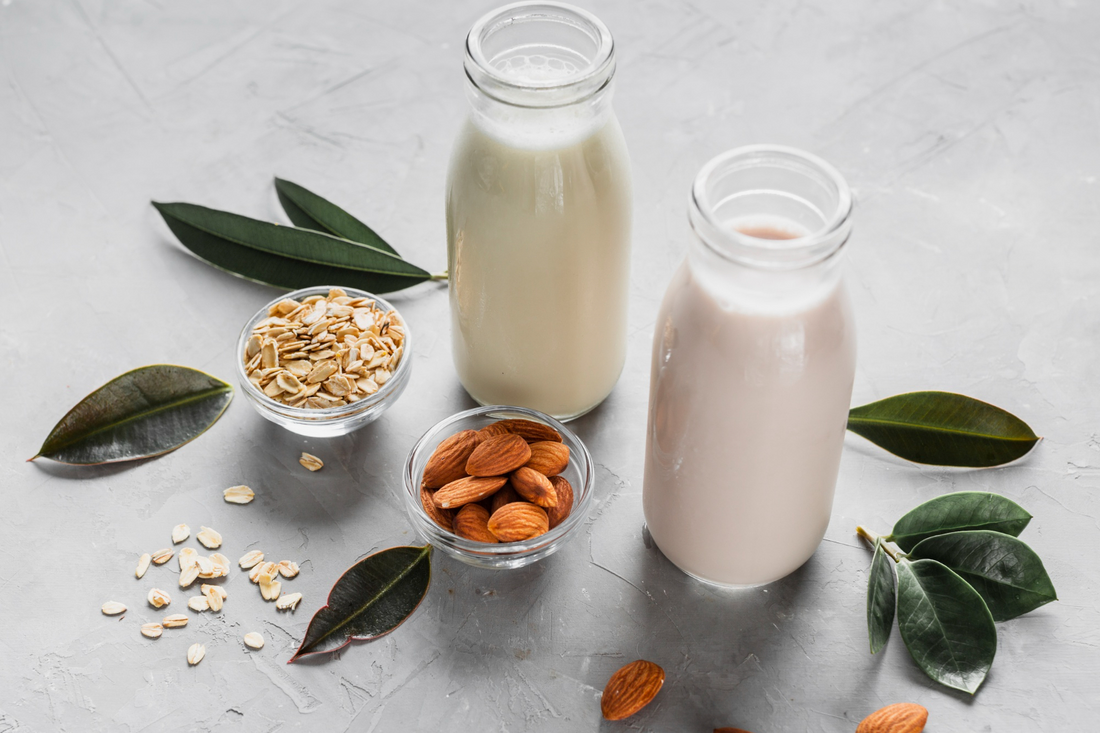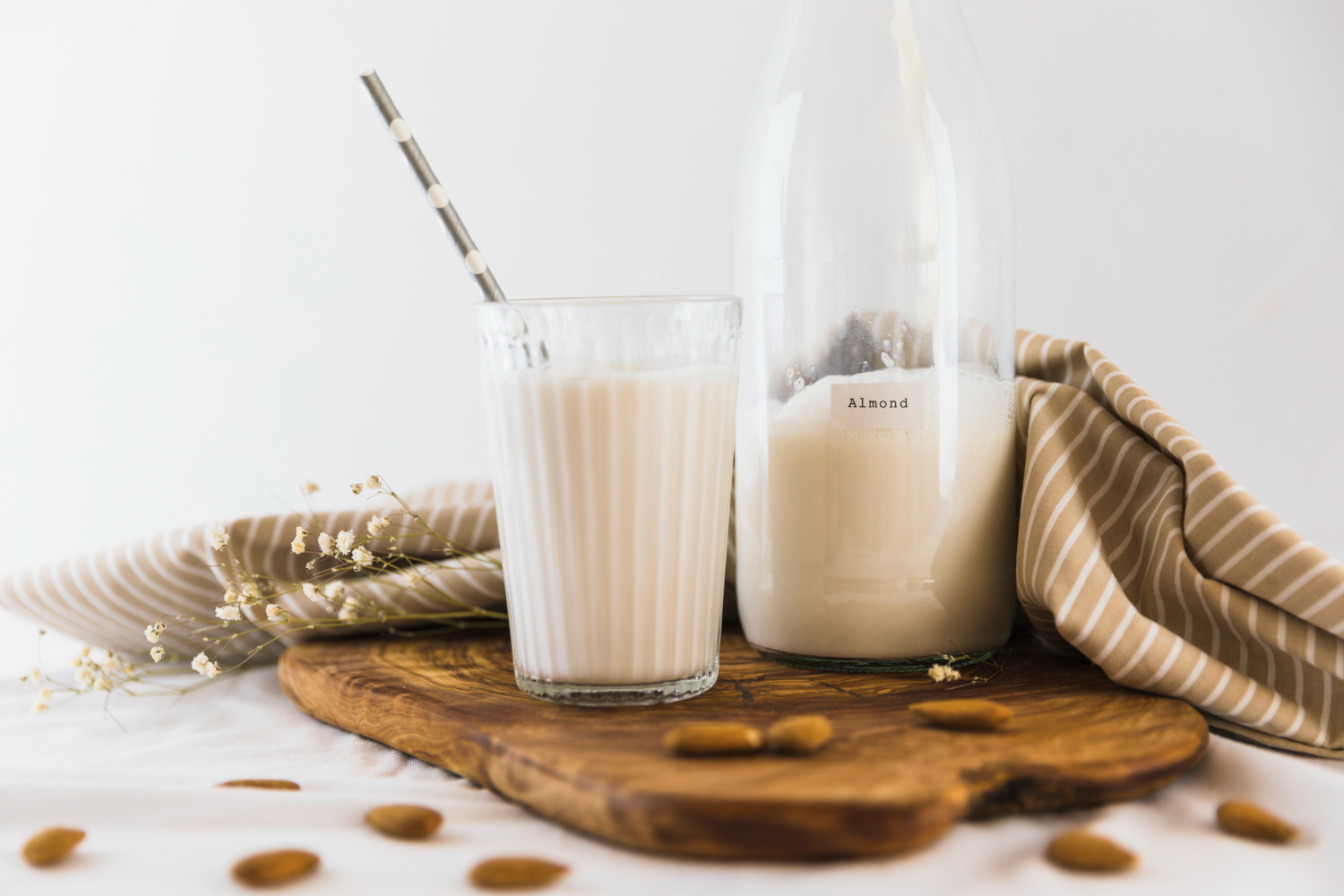
Non-Dairy Milk Alternatives: Explore The Endless Possibilities Beyond Traditional Dairy
Share
Understanding Non-Dairy Milk Alternatives
Non-dairy milk alternatives refer to beverages similar to cow's milk, which do not originate from animal sources. With increasing awareness around lactose intolerance, veganism, environmental concerns, and allergies, these alternatives offer consumers new choices beyond traditional milk products. They cater to diverse preferences and dietary requirements without compromising taste, nutrition, or functionality.
Exploring Non-Dairy Milk Alternatives for Coffee
Coffee enthusiasts seeking non-dairy milk substitutes can choose from several options. Each type delivers unique flavors, textures, and functionalities that influence their suitability for specific applications like cappuccinos, lattes, or black coffees. The remainder of this article presents an extensive review of different non-dairy milk alternatives suitable for coffee drinkers, followed by additional insights into sustainability, pairings, and potential drawbacks associated with them.
Types of Non-Dairy Milk Alternatives for Coffee
This section explores various kinds of non-dairy milk alternatives perfect for enhancing your coffee experience, discussing essential aspects such as frothing capabilities, compatibility with various roast profiles, and general accessibility.
These include:
- Almond milk
- Soy milk
- Coconut milk
- Oat milk
- Hemp milk
- Cashew milk
- Rice milk
- Flaxseed milk
- Pea milk
Additional Considerations Surrounding Non-Dairy Milk Alternatives
After covering various non-dairy milk alternatives, we shall examine related topics, such as eco-friendliness, food pairings, and possible downsides linked to these products. By doing so, readers gain comprehensive knowledge necessary to make informed decisions based on personal preferences, ethical considerations, and lifestyle choices.

Types of Non-Dairy Milk Alternatives for Coffee
1. Almond Milk
Almond milk, prepared by blending almonds and water before straining out solid particles, brings a distinct nuttiness to coffee beverages.
Can it Make Froth for Coffee?
While generally lacking frothing ability due to lower fat content, barista versions enriched with extra proteins allow better steaming performance.
What Does Oat Milk Taste Like in Coffee?
Unsweetened varieties present minimal impact on overall flavor balance.
2. Soy Milk
Soy milk derives from ground soybeans steeped in water, offering a creamy texture and neutral taste adaptable across multiple coffee styles.
Can it Make Froth for Coffee?
Its higher protein concentration makes it conducive to frothing, creating silky microfoam reminiscent of conventional milk.
What Does Soy Milk Taste Like in Coffee?
Be aware that certain brands might introduce unwanted aftertaste; thus, selecting quality soy milk matters significantly.
3. Coconut Milk
Extracted from coconut meat, coconut milk possesses a rich, velvety consistency imparting depth to coffee drinks.
Can it Make Froth for Coffee?
Coconut milk has a limited frothing capability. Opt for "light" or reduced-fat variants if aiming for improved pourability and decreased caloric intake.
What Does Coconut Milk Taste Like in Coffee?
This milk introduces exotic undertones appealing to adventurous palates.
4. Oat Milk
Oat milk originates from rolled oats soaked overnight and processed with water.
Can it Make Froth for Coffee?
Popular amongst baristas, oat milk showcases impressive frothing properties, yielding thick crema layers comparable to those seen in traditional milk-based espressos.
What Does Oat Milk Taste Like in Coffee?
Additionally, its naturally sweet profile complements various coffee beans effortlessly.
5. Cashew Milk
Produced through blending cashews and water, cashew milk touts a luxurious texture devoid of overpowering flavors.
Can it Make Froth for Coffee?
Unfortunately, poor emulsification hinders consistent froth formation, rendering it unsuitable for visually pleasing beverages but still enjoyable in regular coffee brews.
What Does Cashew Milk Taste Like in Coffee?
The slightly sweet taste is pleasant in coffee and it it found to be less nutty tasting than other nut based milks.
6. Pea Milk
Pea milk comes from yellow peas, providing substantial protein quantities relative to other plant-based milks alongside enhanced sustainability credentials.
Can it Make Froth for Coffee?
Its robust character supports credible frothing outcomes, culminating in commendable latte art prospects despite bearing trace pea notes detectable upon closer inspection.
What Does Pea Milk Taste Like in Coffee?
It is widely claimed that pea milk is the closes substitute to dairy milk on the market at this time regarding taste. it is smooth and will not leave an aftertaste in your mouth - unlike some other alternatives.

Additional Considerations Surrounding Non-Dairy Milk Alternatives
Eco-Friendliness
Shifting towards ecologically responsible practices, consumers must assess production methods tied to selected non-dairy milk alternatives. For instance, almond cultivation demands considerable irrigation resources, whereas soybean farming often triggers deforestation issues. Conversely, oats and peas impose lesser burdens on ecosystems, promoting greener agricultural standards worth supporting.
Food Pairings
Complementing non-dairy milk selections with appropriate cuisine heightens gastronomical experiences. Nutritious almond milk pairs seamlessly with fruit salads or granola bowls, whereas heartier dishes like stir-fries harmonize nicely with coconut milk. Similarly, savory curries find harmony within cashew or pea milk accompaniments.
Potential Downsides
Some non-dairy milk alternatives harbor disadvantageous traits, necessitating careful consideration. Allergic reactions represent chief concerns, particularly concerning nuts, soy, gluten, or legumes. Moreover, excessively sugared formulations should warrant caution since they could negate intended health advantages. Lastly, price disparity between mainstream dairy products and premium non-dairy alternatives may deter budget-conscious shoppers.

Final Thoughts
Selecting Ideal Non-Dairy Milk Alternatives for Your Lifestyle
Navigating the vast array of non-dairy milk alternatives empowers coffee lovers to customize their drinking adventures meaningfully. From almond milk's subdued nuances to soy milk's remarkable frothing prowess, myriad possibilities await discovery. Armed with understanding crucial elements influencing selection criteria, discerning customers confidently identify optimal matches aligning with individual values, ethics, and aspirations.
Balancing Personal Preferences Against Environmental Impact
While satisfying personal cravings constitutes a primary concern, adopting mindful consumption habits encourages greater accountability towards our planet's finite resources. Evaluating environmental impacts embedded throughout respective manufacturing processes helps guide informed decision-making favoring long-term sustainability objectives. In turn, conscious choices contribute positively toward fostering enduring change reverberating far beyond single servings or daily rituals. Ultimately, striking equilibrium between indulgence and responsibility transforms everyday moments into cherished occasions worthy of celebration.
